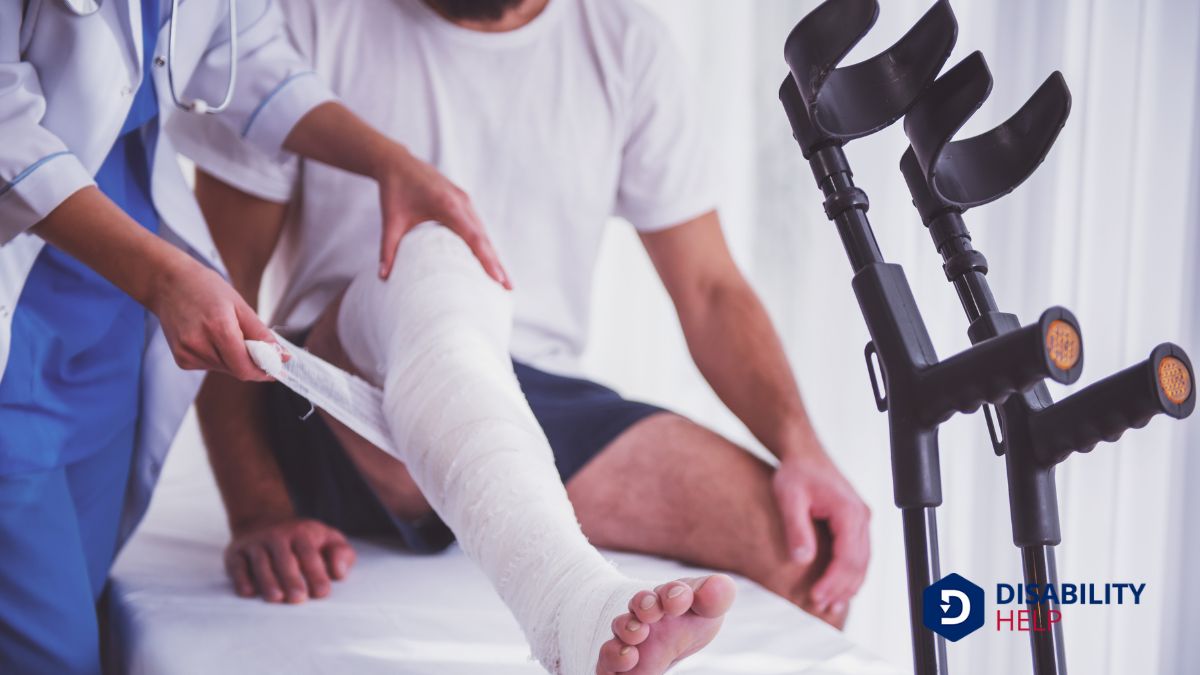When we think about workers' compensation, the breadth of medical expenses it covers can be surprising. From emergency services and hospitalization to prescriptions and physical therapy, it aims to alleviate the financial strain on injured employees. But what exactly does this coverage entail for more specialized treatments like mental health servicesProfessional services that support individuals in managing mental health conditions, such as therapy... or dental work? By understanding the full extent of these benefits, we can better navigate the complexities of workplace injuries. Let's explore how these various medical expenses are managed and what nuances might come into play.
Key Takeaways
- Hospitalization, surgeries, and post-operative care are covered under workers' comp insurance.
- Emergency medical services, including ambulance transport and critical injury care, are included.
- Doctor's visits, consultations, and necessary diagnostic tests like X-rays and MRIs are covered.
- Prescription medications and medical appliances such as wheelchairs and prostheticsArtificial devices that replace missing body parts, such as limbs, often used after amputations. are reimbursed.
- Physical therapy and rehabilitationThe process of helping individuals with disabilities achieve and maintain their optimal physical, se... services essential for recovery from work-related injuries are covered.
Overview of Covered Medical Expenses

When it comes to workers' comp insurance, understanding what's covered can make a world of difference for those dealing with work-related injuries or illnesses. Workers compensation insurance aims to ease the financial burden associated with medical care. It's important to know which medical expenses are covered by workers' comp insurance to make sure we receive the necessary treatments without worrying about the costs.
Typically, workers' compensation insurance covers a range of medical expenses. These include hospitalization, doctor's services, and prescriptions. If our injuries require surgeries or physical therapy, those are also covered. Diagnostic tests like X-rays and MRIs, which help doctors determine the extent of our injuries, fall under the covered expenses as well.
Beyond the basics, workers' comp insurance can also cover dental work and even medical appliances such as wheelchairs and prosthetics. This all-inclusive coverage ensures that we've access to the tools we need for recovery.
The Texas Department of Insurance sets guidelines to make sure these medical costs are paid appropriately under workers' comp insurance.
Emergency Medical Services
Emergencies can strike without warning, and it's vital to know that workers' compensation insurance has us covered. When we're faced with a sudden work-related injuryAn injury that occurs in the course of employment, potentially leading to temporary or permanent dis... or illness, immediate medical care is crucial. Workers' compensation coverage guarantees we receive the emergency medical services we need right away.
Here's how workers' compensation helps us in emergency situations:
- Ambulance Transportation: If we've sustained a critical injury on the job, workers' comp covers the cost of ambulance transport to the nearest medical facility. This ensures we receive fast, professional medical care to treat our injuries.
- Emergency Room Treatment: Once we arrive at the hospital, workers' comp takes care of the emergency room expenses. This includes everything from initial assessment to any necessary tests, treatments, or procedures needed to stabilize our condition.
- Critical Injury Care: Workers' comp benefits extend to all emergency medical services required to address severe injuries. This means that whether it's a broken bone or a severe laceration, we're guaranteed timely and effective treatment.
Hospitalization and Surgeries
When it comes to hospital stays and surgeries, workers' compensation insurance covers all necessary expenses. This includes not just emergency room visits but also any required post-operative care. Knowing that these costs are taken care of can help us focus on recovery without financial stress.
Emergency Room Coverage
For employees injured on the job, workers' comp insurance plays an important role in covering emergency room visits, guaranteeing they receive immediate medical attention. This coverage is crucial when dealing with work-related injuries that require urgent care. Workers' comp doesn't just handle the emergency room visits themselves but also the necessary medical procedures and surgeries that might follow.
Here's what workers' comp insurance typically covers in these scenarios:
- Emergency Room Visits: When an employee is injured, getting to the ER quickly is essential. Workers' comp ensures that the cost of these visits is covered, allowing for prompt medical evaluation and treatment.
- Medical Procedures: In emergency situations, immediate medical procedures may be necessary to stabilize the injured employee. Workers' comp covers these procedures, ensuring the employee receives the best possible care without delay.
- Surgeries: Some work-related injuries might require surgical interventionMedical treatment involving an operation to correct or treat a health condition.. Workers' comp insurance covers these surgeries, including the associated hospitalization costs, alleviating the financial burden from the employee.
Post-Operative Care
Post-surgery care is a vital phase in the recovery process for employees who've undergone surgeries due to work-related injuries or illnesses. When it comes to workers' compensation insurance, understanding what's covered can help ease some of the stress associated with medical expenses.
Surgeries are often necessary to mend injuries sustained on the job, and the good news is that workers' comp typically covers these procedures. This means you won't have to worry about the costs of the surgery itself, which can be quite substantial.
In addition to surgeries, hospitalization costs are also covered under workers' compensation. This includes room and board, medications, and surgical supplies required during your hospital stay. It's reassuring to know that these essential aspects of post-surgery care are taken care of, allowing you to focus on your recovery without the financial burden.
As employers, it's our responsibility to ensure that you receive appropriate post-surgery care, including any necessary surgeries. By understanding these benefits, we can better support your recovery journey. Workers' comp aims to provide all-encompassing care so that medical expenses don't hinder your path to wellness.
Doctor's Visits and Consultations

When discussing doctor's visits and consultations, it's important that we grasp the treatment eligibility criteria and the range of covered medical services. Workers' comp usually covers initial assessments, follow-ups, diagnostic tests, and consultations with specialists.
We should also be mindful of the required documentation needed for these consultations to guarantee smooth coverage.
Treatment Eligibility Criteria
Ever wonder what it takes to qualify for treatment under workers' compensation insurance? To make sure we get the necessary medical treatment for work-related injuries, we must meet specific eligibility criteria. Here's a breakdown:
- Work-Related Injury or Illness: The primary criterion is that the injury or illness must be related to our job. This means it happened during the course of our employment and as a direct result of our work duties.
- Necessary Treatment: A healthcare provider must deem the medical treatment essential for recovery. This can include doctor's visits, consultations, specialist appointments, diagnostic tests, physical therapy, and follow-up care.
- No Out-of-Pocket Expenses: One of the significant benefits is that workers' comp insurance typically covers these expenses, so we don't have to pay out of pocket for the care we need to get back on our feet.
Covered Medical Services
In addition to the peace of mind, it provides, workers' compensation insurance guarantees we get the necessary medical services for any work-related injuries or illnesses. When we suffer a work-related injury, it's reassuring to know that our medical expenses are covered. Workers' compensation insurance ensures we can visit doctors and specialists without worrying about the cost.
Doctor's visits and consultations are vital components of the covered medical services under workers' comp. Employees can seek treatment from authorized healthcare providers designated by the insurance carrier. These visits might include evaluations to assess the severity of the injury, diagnostic tests to pinpoint the issue, and consultations with specialists.
Moreover, workers' compensation insurance covers a wide range of essential medical services. These include surgeries, physical therapy, and rehabilitation, which are necessary for recovery. Even medications prescribed by our doctors are typically covered, ensuring we don't incur out-of-pocket expenses.
Consultation Documentation Needed
Proper documentation is essential for securing coverage for our doctor's visits and consultations under workers' compensation insurance. To guarantee our medical bills are covered, we need to provide thorough consultation documentation. This process might seem overwhelming, but breaking it down into clear steps can help.
- Itemized Medical Bills: Always obtain itemized medical bills from our doctor's visits and consultations. These bills should detail each service provided and its cost. This clarity helps the insurer understand the necessity of each charge.
- Receipts and EOB: Collect and include receipts for any paid bills, as well as the insurance Explanation of Benefits (EOB). The EOB outlines what our insurance has already covered, validating transparency.
- Claim Form Details: When submitting our documentation, make sure the claim forms are complete. Include patient information, service dates, billed amounts, provider details, and any collateral source information.
Prescription Medications
Prescription medications play a key role in the recovery process for employees who suffer work-related injuries or illnesses. These prescription medications are part of the necessary medical expenses that workers' compensation insurance covers. When an employee is injured on the job, their treating physician may prescribe medications important for their recovery. Fortunately, workers' compensation coverage guarantees that these costs are taken care of.
Through workers' comp, employees don't have to worry about the financial burden of their prescriptions. This coverage is designed to ensure we've access to the medications needed to manage pain, reduce inflammation, or treat infections resulting from work-related injuries. By covering these medical expenses, workers' compensation allows us to focus on healing rather than the cost of our treatments.
It's important to understand that the cost of prescription drugs prescribed for treating work-related injuries is typically reimbursed as part of the overall workers' compensation benefits. This means that employees can rest assured knowing they won't be out of pocket for essential medications.
Access to these medications is essential for a smooth and effective recovery, ultimately helping us return to work in the best health.
Physical Therapy and Rehabilitation
Physical therapy and rehabilitation are fundamental components of the recovery process for employees who suffer work-related injuries. Workers' comp insurance typically covers these services to help injured employees regain strength, mobility, and function. Understanding the benefits and coverage can guarantee a smoother recovery process.
Rehabilitation services under workers' comp insurance often include:
- Exercises and Strength Training: Tailored exercises help restore movement and build strength, which is essential for returning to work.
- Manual TherapyA form of physical therapy involving hands-on techniques to reduce pain, increase mobility, and impr...: Techniques like massage or joint manipulation alleviate pain and improve mobility.
- Modalities: Treatments such as heat or ice packs reduce inflammation and accelerate healing.
Workers' comp insurance usually covers a set number of physical therapy sessions based on medical necessity. This ensures the treatments are both effective and necessary for recovery.
The primary goal is to restore our ability to perform job-related tasks safely and effectively, preventing further injuries and improving overall quality of life.
It's important to follow the prescribed rehabilitation plan closely. By doing so, we maximize the benefits of physical therapy, ensuring a quicker and more efficient return to our daily routines and work responsibilities. Let's embrace these services as essential steps on our path to full recovery.
Dental Treatments

When we think of workplace injuries, dental treatments mightn't immediately come to mind, but they're a significant aspect of recovery for some employees. Workers' compensation insurance can cover necessary dental treatments if they're linked to a work-related injury or illness. This means that if an injury at work results in the need for dental procedures like extractions, fillings, or root canals, the medical costs may be covered.
The extent of coverage for dental treatments often depends on the severity of the injury and its direct connection to the workplace incident.
It's essential to understand that cosmetic dental procedures usually aren't covered unless they're vital for recovery. For instance, if a work-related accident results in damaged teeth that affect eating or speaking, the insurance provider might deem treatments necessary.
Given the complexities, it's important for us to consult with the workers' compensation insurer to clearly understand the specific coverage for dental treatments. This will help guarantee that all necessary procedures are covered, reducing stress during recovery.
Mental Health Services
While dental treatments address the physical aftermath of workplace injuries, mental health services play an important role in handling the psychological impact. Workers' compensation insurance may cover mental health services for work-related injuries or illnesses. This is significant because the emotional and psychological toll of workplace incidents can be just as incapacitating as physical injuries.
Here's what workers' compensation insurance typically covers for mental health services:
- Therapy: Access to professional therapy sessions can help employees process and heal from traumatic events experienced at work.
- CounselingProfessional guidance to help individuals cope with emotional, mental, or social challenges, particu...: Counseling servicesProfessional guidance to help individuals cope with emotional, mental, or social challenges. offer a supportive environment to discuss and manage work-related stress and anxiety.
- Psychiatric Evaluations: Thorough assessments by a psychiatrist can diagnose and guide treatment for mental health conditions arising from workplace incidents.
To ensure these services are covered, workers might need to provide documentation demonstrating the necessity of mental health treatment. This often includes reports from mental health professionals indicating that the treatment is directly related to a workplace incident.
Access to mental health services through workers' comp insurance is essential for supporting employees' overall well-being and recovery process. By addressing both physical and psychological needs, we can promote a more holistic recovery, enabling employees to return to work healthier and more resilient.
Frequently Asked Questions
Are emergency medical treatments covered by workers' compensation insurance?
- Yes, emergency medical treatments required immediately after a workplace injury or illness are covered by workers' compensation. You should seek emergency care as needed and inform your employer and the workers' compensation insurer as soon as possible after the incident.
Can I see any doctor, or do I need to visit a specific healthcare provider?
- This depends on your state’s workers' compensation laws and your employer’s insurance policy. In some states, you are required to see an approved doctor or visit a healthcare provider within the workers' compensation insurance network. However, some states allow you to choose your own doctor for treatment.
Does workers' compensation cover ongoing treatments such as physical therapy or rehabilitation?
- Yes, workers' compensation typically covers ongoing medical treatments like physical therapy, rehabilitation, and follow-up doctor visits, as long as they are necessary for recovery and are directly related to the work injury. These treatments may require pre-approval from the insurer.
What should I do if my workers' compensation insurer refuses to cover certain medical expenses?
- If the insurer denies coverage for certain medical expenses, you should review the reason for the denial and gather supporting medical evidence to challenge the decision. You may appeal the denial through your state's workers' compensation board, and it can be helpful to consult with a workers' compensation attorney to navigate the process.
Conclusion
To sum up, we've discussed the extensive array of medical expenses that workers' compensation insurance covers. From urgent care and hospitalizations to medical consultations, medications, and even psychological health assistance, it's all tailored to assist you in getting back on your feet. Keep in mind that you're not facing this alone; the Texas Department of Insurance guarantees these expenses are supervised, allowing you to concentrate on your recovery without economic worries. We're here to support you.






